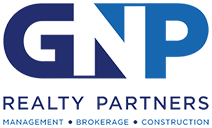
Being a landlord is hard work and demands specific skills. Even those well-suited to the role make mistakes—especially at the beginning. For many property owners, landlord “duties” is a side gig, something you do when you’re not doing your “real” job. But being an independent landlord is a real job—and it can be stressful.
Landlord mistakes can cost time and money—and diminish the value of your investment. In worst-case scenarios, mistakes have legal repercussions under state or local landlord-tenant laws. If you are a new landlord or are considering becoming a landlord, consider the following to avoid the most common mistakes and pitfalls.
Want to learn more about Property Management?
Request Information | or Call Us at 312-329-8400
1. Insufficient tenant screening and verification
An empty unit means no income for that month, but renting to the wrong tenant can cost you way more money in the long run. Don’t be tempted to skip the credit or background check because you have someone with payment in hand. Verify references, including employers and former landlords. If a prospective tenant won’t agree, that’s a red flag! Your goal is to protect your investment, which means renting to responsible parties that pay on time, respect your property and adhere to lease agreements. Evictions take time and are expensive.
2. Inadvertently discriminating
While you have the right to set some qualification parameters, you may not discriminate and violate the Federal Fair Housing Act and subsequent Fair Housing Amendments Act, which prohibits discrimination on the basis of “protected categories” (race or color, religion, national origin, familial status or age, disability or handicap, and sex). Familiarize yourself with all federal, state and local laws and ordinances regarding tenant and landlord rights. Check with your city or township; most govern landlord activities.
3. Failing to put things in writing and poorly written lease agreements
Never make a verbal agreement—even if you know the person. Inevitably, a disagreement or dispute will arise, and the lack of a written, signed agreement means you have little basis for making your claim. Start with a standard application for residential leases from a reputable source, e.g., an attorney or industry association that is “court-tested.” (A lease that is unclear may be unenforceable.) Then, personalize the agreement to reflect full names to ensure no confusion. Be sure to address lease start/end dates, payment, renewal, and notice of cancellation terms. Outline all provisions associated with both parties’ duties and responsibilities.
Commonly overlooked provisions include smoking, pets, tenant behavior, maintenance and repair procedures, and physical changes to the premises. Before signing, discuss all lease terms with a tenant to minimize future disputes. While a clear and well-worded lease means you will most likely win in court, you’ll incur costs and waste time that might have been avoided if the tenant was thoroughly versed in the lease terms. If you make changes to the agreement down the road, create a separate signed agreement to document the amendment.
4. Failure to enforce the terms of the lease
Don’t make the mistake of being afraid to enforce the lease. While it is hard to lose a tenant, think long-term and what is best for the property. If you said “no pets,” and your tenant gets a dog, enforce the defined penalty, e.g., additional monthly fees or termination of the lease. Landlords who fail to do so invite two problems. First, you’ve signaled that you’re lax about enforcement, so tenants are more likely to violate other rules that don’t suit them. Secondly, you’ve set a precedent. If you let one tenant have a dog, others will demand the same treatment.
5. Underestimating the cost of operations
Investment properties are about generating a return on that investment, which means wise financial management. A common mistake of new landlords is underestimating the cost of rental properties. Expect the unexpected, including major and minor repairs, system replacements and vacancies (budget for at least one-month vacancy per year), and the cost of readying the property for a new tenant. Your budget should reflect annual taxes, insurance (see #7), projected utility increases and regular service contracts, e.g., seasonal HVAC servicing. Read our blog, 12 Rental Property Maintenance Costs You Didn´t Know About, for additional insights.
Keep costs down by hiring licensed and insured contractors, educating tenants on their maintenance responsibilities and responding promptly to maintenance requests to address minor problems before they become more costly. Failure to address a reported maintenance issue can result in a lawsuit associated with the “implied warranty of habitability,” which requires landlords to keep a property in a habitable condition.
6. Forgoing appropriate inspections
Forgoing regular inspections is an easy-to-make mistake for busy landlords, but regular inspections of your investment property minimize surprises when a tenant vacates the property. GNP accesses its managed units four times a year—providing notification as defined by local ordinances—to replace HVAC filters and smoke detector batteries. These appointments provide an opportunity for a visual inspection, bringing to light any maintenance needs, misuse of the property, or a potentially dangerous situation. Inspections also mitigate risk as some insurers view regular inspections as landlord due diligence—critical for a favorable judgment on a claim. Review rental property inspection laws regarding notification and access to avoid violating a tenant’s rights.
7. Insurance Coverage
Investment property owners often fail to obtain adequate or the correct coverage to protect their investments. Owners should have both property and liability coverage. Insurance is not the place to cut costs. A single incident not covered by insurance could cost far more than a broad-coverage policy. Also, consider insurance to protect you against lawsuits filed by a tenant related to eviction, illegal entry, negligence or other situation whereby a tenant claims to be harmed by your actions as a landlord.
GNP Realty, Your Partner in Property Management
Inexperienced or would-be independent landlords may wish to off-load rental management responsibilities to a third party and eliminate the risk associated with these and other common landlord mistakes. GNP Realty manages residential properties of all sizes—always striving to balance your interests with the wants and needs of your tenants to reduce tenant turnover while protecting your investment. Contact us for more information on how we can assist you with your property management needs.
GNP Realty’s in-house family of diversified companies provides our clients with full-service strategy and hands-on support for all your real estate needs. From brokerage and management to construction and maintenance, we tailor our commercial and residential services to help you achieve your goals as a property owner or investor.







